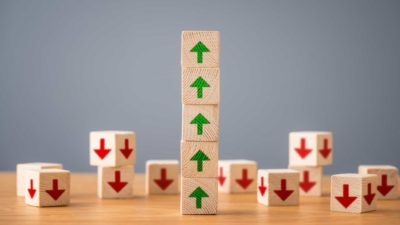Even though many shares have recovered after the 2020 stock market crash, there are numerous risks still present. They include ongoing coronavirus cases, as well as political risks such as Brexit and the US election. As such, the threat of a second downturn for stock prices remains high.
While this may cause challenges for investors in the short run, it may provide buying opportunities for the long run. Therefore, preparing for a period of stock market instability now could pay off via high returns in the coming years.
The potential for a second stock market crash
As mentioned, the threat of another stock market crash remains high. Share prices across multiple sectors have surged higher in the past few months despite a continued rise in coronavirus cases across the world. Therefore, some shares may prove to be overvalued, since there is the potential for additional lockdown measures to come into force to curb the pandemic that could negatively impact on their financial prospects.
Furthermore, political risks in Europe and North America could rise significantly in the latter part of 2020. In the US, the election may cause investors to become more cautious about the outlook for the economy. Fiscal policy changes could shift investors towards less risky assets, and cause them to re-evaluate their valuations of stocks in a variety of industries. Similarly, Brexit could lead investors to demand a wider margin of safety when buying stocks. Brexit is a known unknown that may lead to greater risk aversion among investors that forces stock market indexes lower.
An omnipresent threat?
Of course, the threat of a stock market crash is always present. Some catalysts that cause share prices to decline sharply cannot be foreseen. For example, one-off events can cause investor sentiment to change rapidly. Therefore, investing even when the outlook for the economy and stock market is relatively subdued does not necessarily mean that investors will avoid paper losses in the short run.
However, the scale of risks currently present means that investors may wish to focus their capital on companies and sectors that have a better chance of surviving what could be a difficult economic period. For example, those businesses that have modest debt levels and wide economic moats may be better able to withstand a period of lower sales and profitability.
Through buying such companies, you may be in a strong position to not only overcome a second stock market crash, but to generate high returns in the long run. After all, the stock market's track record of recovery from even its very worst bear markets suggests that buying high-quality companies while the economic outlook is uncertain can be a logical strategy. Therefore, while the prospect of a downturn may cause fear among some investors, it can allow long-term investors to capitalise on attractive valuations across the stock market.








